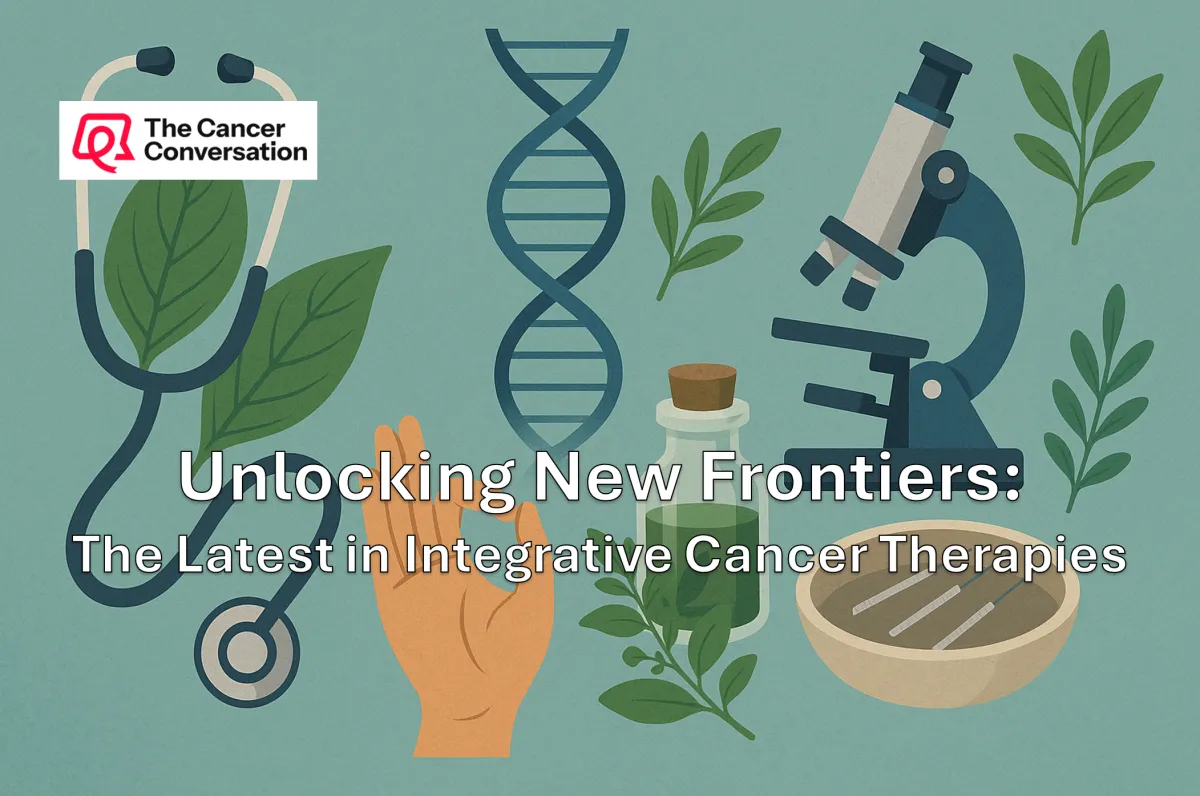
Unlocking New Frontiers: The Latest in Integrative Cancer Therapies
Imagine a world where your cancer journey isn't just about treatment—it's about healing every part of you. Integrative cancer therapies blend natural and traditional methods, offering a path that nurtures both body and mind. As we explore the latest advancements, you'll discover how these holistic cancer treatments can enhance your well-being, boost emotional resilience, and provide personalized care tailored just for you. Ready to embrace a supportive community and embark on a healing path? Explore our holistic programs and join us on this empowering journey today.
Advancements in Integrative Cancer Therapies

Integrative cancer therapies are redefining how we approach cancer treatment by combining the best of natural and traditional methods. These advancements aim to support the entire being, focusing not just on eradicating cancer but also on promoting overall well-being. Let's explore how these therapies are evolving and what they offer to those on a cancer journey.
Blending Natural and Traditional Methods
The convergence of natural and traditional treatments offers a comprehensive approach to cancer care. Natural treatments often include dietary changes, herbal supplements, and mindfulness practices, which are used alongside traditional methods like chemotherapy and surgery.
Assessment: Patients undergo an evaluation to determine which natural and traditional methods will work best together.
Implementation: A personalized plan is developed to incorporate both treatment types.
Monitoring: Ongoing assessments ensure the combined methods are effective and adjust as needed.
A 2025 WHO report highlights how integrating these approaches enhances treatment efficacy and patient satisfaction.
Real-world examples show that patients experiencing integrative therapies often report better quality of life. Key insights include:
Improved symptom management
Reduced side effects
Increased emotional well-being
Enhancing Mind-Body Wellness
Mind-body wellness is a core component of holistic cancer treatment, focusing on the interconnectedness of mental and physical health. This approach emphasizes practices that promote relaxation and emotional resilience, such as yoga, meditation, and acupuncture.
Studies from Fullscript indicate that mind-body interventions can significantly alleviate stress and improve recovery outcomes. Patients are encouraged to adopt these practices into their daily routines to maintain balance and peace.
For example, incorporating a daily meditation practice can help:
Reduce anxiety
Improve focus and clarity
Strengthen emotional resilience
A case study highlighted a patient who experienced substantial improvement in mental health after integrating mind-body practices with conventional cancer treatments.
Personalized Care for Cancer Patients

Personalized cancer care recognizes that each patient's journey is unique, requiring tailored approaches to treatment. This section delves into how personalized strategies are developed and their impact on patient outcomes.
Tailoring Treatments to Individual Needs
Personalized cancer care involves customizing treatment plans based on an individual's specific needs, genetic makeup, and lifestyle preferences. This approach ensures that therapies are as effective and minimally invasive as possible.
Genetic Testing: Identifies genetic mutations that may influence treatment options.
Lifestyle Assessment: Considers diet, exercise, and stress levels.
Treatment Plan Development: Combines conventional treatments with complementary therapies.
Research published in SAGE Journals shows that personalized care improves patient satisfaction and outcomes.
Real-world examples demonstrate the effectiveness of personalized care:
Enhanced treatment responsiveness
Reduced adverse effects
Greater patient empowerment and involvement
Supporting Emotional Resilience
Supporting emotional resilience is crucial for patients facing cancer. Integrative therapies often include psychological support and counseling to help patients cope with the emotional challenges of their journey.
A study from PMC highlights the importance of addressing mental health alongside physical health. Counseling sessions, support groups, and creative therapies are common components of this support.
Recommendations for caregivers and loved ones include:
Encourage open communication
Provide a listening ear
Engage in supportive activities together
These strategies can foster a sense of connection and hope during challenging times.
Building a Supportive Healing Community

A supportive community is vital in the cancer journey. It provides a network of understanding and shared experiences that can greatly enhance healing and emotional resilience. Let's explore how individuals can become part of such communities.
Joining Holistic Cancer Programs
Holistic cancer programs offer comprehensive care, focusing on mind-body wellness and community support. These programs provide a structured environment where patients can explore various therapies and connect with others.
Participants often engage in:
Structured group activities
Individual counseling sessions
Educational workshops
Joining these programs allows individuals to tap into a supportive network that promotes healing and personal growth.
Sharing Stories and Testimonials
Stories and testimonials from those who have walked the cancer path offer powerful insights and inspiration. They serve as reminders that no one is alone in this journey.
In a study, patients who shared their experiences reported feeling more empowered and connected. Key takeaways from sharing stories include:
Enhanced emotional resilience
Increased sense of community
Validation of personal experiences
These narratives can inspire hope and provide practical advice for others facing similar challenges.
🌟







